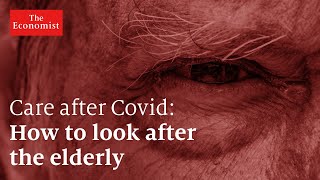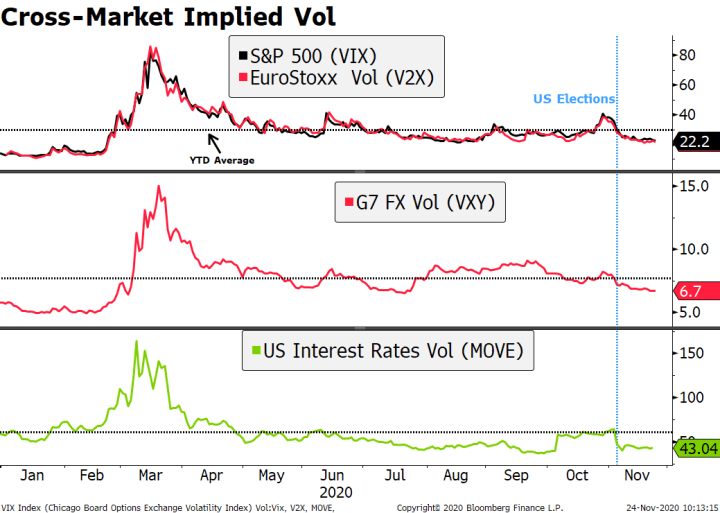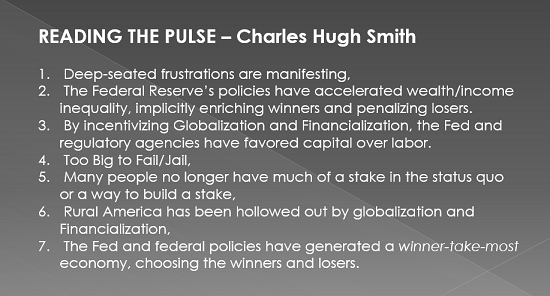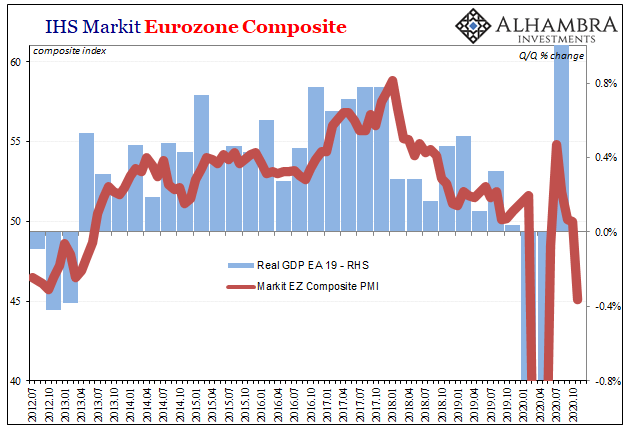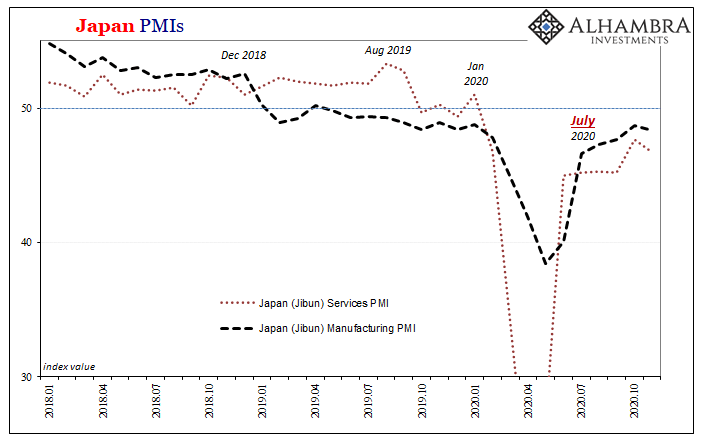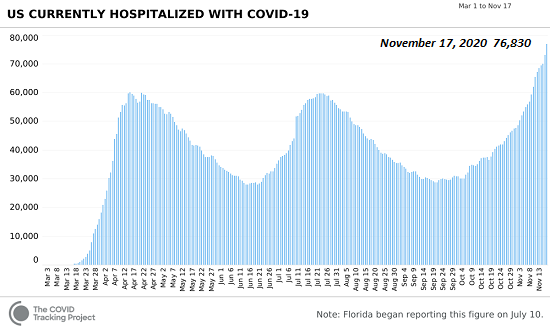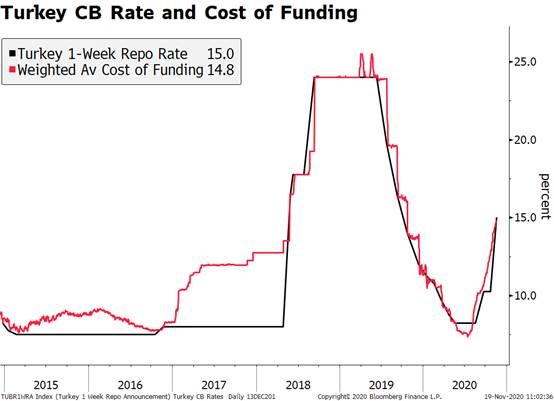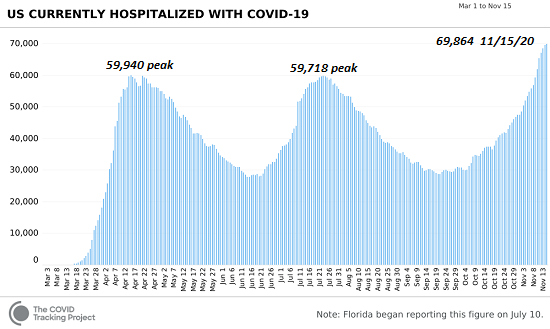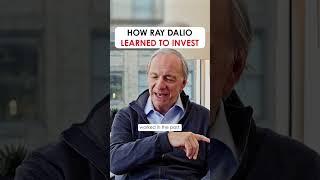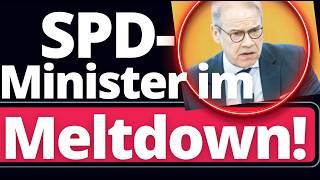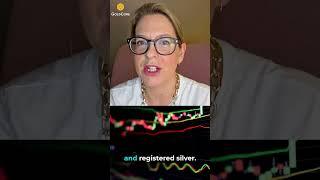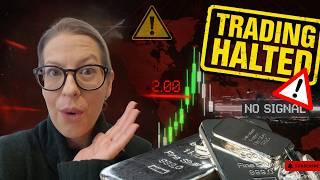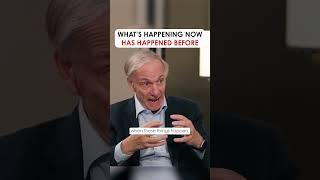Category Archive: 5) Global Macro

Care after covid: the future of elderly health-care | The Economist
Across the rich world around half of covid-19 deaths have been in care homes. Countries need to radically rethink how they care for their elderly—and some innovative solutions are on offer.
Find The Economist’s most recent coverage of covid-19 here: https://econ.st/3m212Kj
Read our special report on the challenges of caring for an ageing population: https://econ.st/2UW40EB
Why we need to urgently reform our elderly care systems:...
Read More »
Read More »
A Dimly Lit Thanksgiving
Our overweening faith and confidence in our wealth and power make this a dimly lit Thanksgiving. A public expression of gratitude by victorious sports stars, lottery winners, etc. is now the convention in America: coaches, teammates, family and mentors (or agents) are recognized as an expression of the winners' humility and gratitude for everyone that contributed to the success.
Read More »
Read More »
In The World Change Process
The world is in the process of change. Especially in terms of health and economy, the world has experienced the biggest chaos of recent times. We are seeing signs of transition to the new economic order. What are the plans?
Read More »
Read More »
Making Sense Eurodollar University Episode 32 Part 3
The Chinese currency is gaining against the dollar. That SHOULD be an 'all-clear' signal that reflation, global trade, and positive momentum are in place. But we DO NOT see corroborating evidence on the People's Bank of China balance sheet. Maybe the move is an engineered feint?
Read More »
Read More »
Dollar Weakness Resumes as Short-Covering Fades
Sentiment is being buoyed by two incrementally positive stories; cross-markets implied volatility measures continue to trend lower; dollar weakness has resumed. President-elect Biden will reportedly officially name his first cabinet picks today; Fed manufacturing surveys for November will continue to roll out; Brazil and Mexico both reports mid-November inflation readings.
Read More »
Read More »
Dollar Weakness Resumes as Markets Start Another Week in Risk-On Mode
Covid vaccine results from AstraZeneca and Oxford University brought another wave of optimism; dollar weakness has resumed; that said, we will refrain from making any longer-term calls for the demise of the dollar. Reports suggest President-elect Biden is pushing House Democrats to reduce the size of their fiscal package demands to unlock negotiations; Republicans have an interest in compromising.
Read More »
Read More »
Our Frustrations Run Far Deeper Than Covid Lockdowns
The reality is the roulette wheel is rigged and only chumps believe it's a fair game. It's easy to lay America's visible frustrations at the feet of Covid lockdowns or political polarization, but this conveniently ignores the real driver: systemic unfairness.
Read More »
Read More »
Why I’m Hopeful About 2021
What we need is not a return to the corrupt, tottering kleptocracy of 2019, but a re-democratization of capital, agency and money. I'm hopeful about 2021, and no, it's not because of the vaccines or the end of lockdowns or anything related to Covid. The status quo is cheering the fantasy that we'll soon return to the debt-soaked glory days of 2019 when everything was peachy.
Read More »
Read More »
A Lesson In PMIs: Relative vs. Absolute
The bid for “decoupling” has never been stronger, and, unfortunately, this time actually represents the weakest case yet for it. According to the mainstream interpretations of the most recent sentiment indicators, the US and European economies appear to be going in the complete opposite directions.
Read More »
Read More »
Deflation Returns To Japan, Part 2
Japan Finance Minister Taro Aso, who is also Deputy Prime Minister, caused a global stir of sorts back in early June when he appeared to express something like Japanese racial superiority at least with respect to how that country was handling the COVID pandemic.
Read More »
Read More »
EM Preview for the Week Ahead
Most EM currencies were up last week, once again taking advantage of broad dollar weakness. In addition, EM equities also performed well, with MSCI EM up for the third week in a row and for seven of the past eight. We expect EM assets to continue benefiting from the global liquidity story as well as the weak dollar trend.
Read More »
Read More »
Vaccines–Too Little, Too Late?
Trust in institutions, authorities and Big Pharma is scraping the bottom of the barrel, and rushing these vaccines into mass use with extremely high expectations of efficacy is setting up the potential for a devastating loss of trust in the vaccines should they fail to live up to the claims of 100% safety and 95% effectiveness.
Read More »
Read More »
Dollar Bounce Likely to Fade
The negative virus news stream is taking a toll on market sentiment; the dollar is benefiting from the risk-off price action but is likely to fade. Weekly jobless claims data will be of interest; Fed manufacturing surveys for November will continue to roll out; Judy Shelton’s Fed confirmation is looking less and less likely.
Read More »
Read More »
Turkey Central Bank Preview
We expect the Turkish central bank (CBRT) to deliver a substantial rate hike at Thursday’s meeting but not as aggressive as consensus. Bloomberg’s median expectation is for a 475 bp hike. Our call is for a somewhat less aggressive move (perhaps around 400 bp) because the recent price action is likely to afford the new CBRT administration the confidence not to have to surprise on the upside.
Read More »
Read More »
Extending the Summer Slowdown
A big splurge in September, and then not much more in October. While it would be consistent for many to focus on the former, instead there is much about the latter which, for once, is feeding growing concerns. Retail sales, American consumer spending on goods, has been the one (outside of economically insignificant housing) bright spot since summer
Read More »
Read More »
U.S. Healthcare Is Unraveling
The confidence that there will always be facilities and professionals to care for us is no longer realistic. I've covered the systemic problems of U.S. healthcare for over a decade, and as a result I've attracted numerous healthcare professionals as correspondents.
Read More »
Read More »
Dollar Weakness Continues Ahead of US Retail Sales Data
The dollar continues to soften. October retail sales will be the US data highlight; Fed manufacturing surveys for November have started to roll out; Republican Senator Alexander opposes Judy Shelton’s nomination to the Fed.
Read More »
Read More »
Covid-19: why vaccine mistrust is growing | The Economist
A vaccine for covid-19 could be rolled out before the end of the year. But a worrying rise in mistrust of vaccines threatens its effectiveness. Now & Next is a series from The Economist Films: https://films.economist.com/nowandnext/
Further content:
Find The Economist’s most recent coverage of covid-19 here: https://econ.st/3iwmMMH
Sign up to The Economist’s daily newsletter to keep up to date with our latest covid-19 analysis:...
Read More »
Read More »
Dollar Soft as Markets Start the Week in Risk-On Mode
The odds of national-level action in the US against the second wave virus outbreak remains small, even after Biden takes over; the dollar continues to soften. There is growing speculation about former Fed Chair Yellen becoming Biden’s Treasury Secretary; Fed manufacturing surveys for November will start to roll out; Peru’s interim President Merino resigned under pressure from more demonstrations.
Read More »
Read More »
Roadblocks and Opportunities for International Trade in 2021
We see significant upside risk for global trade coming from “top down” forces (such as politics), but at the same time we expect the undercurrent reconfiguring many of the existing relationships to intensify. The “Peak Globalization” narrative (at least regarding trade) is being challenged by hopes of a revival of multilateral cooperation under Biden and the latest Asian trade agreement.
Read More »
Read More »









